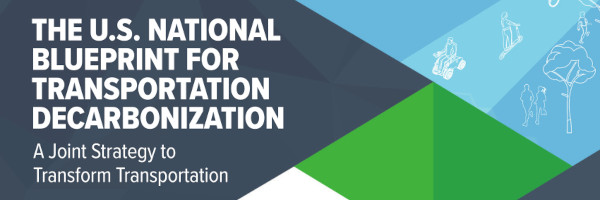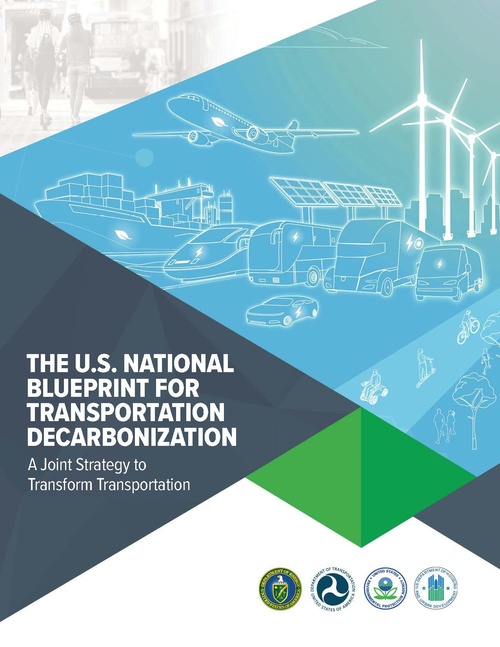The U.S. National Blueprint for Transportation Decarbonization
| Report | |
|---|---|
| Image | 
|
| Published | 2023-01-23 |
| Point(s) of Contact | |
| Organization(s) | Department of Energy |
| Where | Washington DC |

| |
This Blueprint offers a whole-of-government approach to transform the transportation sector and sets forth an interagency call to action to coordinate and work effectively together
Transportation connects us. It connects people, countries, and cultures, and draw us closer to one another. It is also the backbone of our economy and critical to supporting the daily needs of all Americans. Our transportation system has been an engine for growth and prosperity over many decades, but that growth has not come without consequences, and that prosperity has not been shared equally. The transportation sector is now the largest source of greenhouse gas emissions in the United States, contributing to the climate crisis that is worsening quality of life in cities, towns, and rural communities throughout America. Emissions from the transportation sector also contribute to poor air quality. In the United States, these effects disproportionately impact underserved and disadvantaged communities.
To address the climate crisis, we must eliminate nearly all greenhouse gas (GHG) emissions from the sector by 2050 and implement a holistic strategy to achieve a future mobility system that is clean, safe, secure, accessible, affordable, and equitable, and provides sustainable transportation options for people and goods. This U.S. National Blueprint for Transportation Decarbonization (Blueprint) is the roadmap for how we can address these issues to provide better transportation options, expand affordable and accessible options to improve efficiency, and transition to zero-emission vehicles and fuels.
This Blueprint offers a whole-of-government approach to transform the transportation sector and sets forth an interagency call to action to coordinate and work effectively together. Achieving our goals will require close cooperation with industry, local, regional, state, and Tribal governments, non-profits, and other stakeholder groups, as well as allies around the world. With bold, coordinated actions, together we can build a clean transportation system that is clean, safe, secure, accessible, affordable, and equitable, for all Americans to help create a more sustainable future for generations to come.